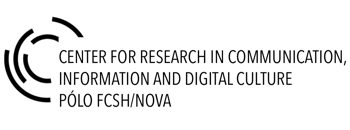One need not look far to see the ways that oil and its infrastructures mediate contemporary cultural and material experience. Highways, along with the vehicles that populate them, proliferate among rural and urban landscapes. Newsmedia, both online and off, overflow with headlines discussing the global economics and geopolitics of oil on the one hand, and oil spills and other ecological consequences of the production and consumption of oil on the other. And, no matter how much we may collectively desire otherwise, we continue to remain within the confines of a society primarily organized around the production and consumption of oil and other fossil fuels–within the confines of what has come to be understood as petroculture (LeMenager 2014). Yet, for all its ubiquity, thinking through the nuanced (and, of course, much less nuanced) ways in which oil mediates contemporary life is a daunting task. Previously left largely to the economists, engineers, and political scientists, the study of oil has only very recently been opened up as a space of inquiry for cultural critics, despite its mediating role in contemporary life and its ubiquitous presence in visible and less visible ways.
With an increasingly accelerated pace, work that examines oil from a social and cultural vantage-point has carved a path for confronting the ways in which oil shapes. 2012 saw the publication of a special issue of the Journal of American Studies on oil cultures, edited by Ross Barrett and Daniel Worden as well as a special issue of Imaginations: Journal of Cross-Cultural Image Studies, “Sighting Oil,” edited by Sheena Wilson and Andrew Pendakis. These issues examine oil’s social and cultural life, positioning it as a social relation rather than an exclusively technical or technological one by examining oil’s material and cultural presences and residues in, for instance, documentaries (Szeman 2012), film (Worden 2012), and photography (Truscello 2012). And work that traces the material relationship between energy and digital media, including Jussi Parikka’s A Geology of Media (2015) and Benjamin Bratton’s The Stack (2016), are beginning to map our simultaneously petroleum-fueled, cloud-based present.
Oil and its infrastructures, then, are both mediating and mediated. This special issue of Media Tropes aims to contribute the burgeoning field of the energy humanities by providing accounts of the ways in which oil (and its infrastructures)mediatesand is mediated.
What ways can or is oil typically represented as a mediating presence or as an object that is mediated? How is oil (trans)formed in media within an increasingly interconnected and globalized Western society? How have various forms of media mediated the cultural construction of oil and oil-related events in the Western social imaginary? How has the emergence and development of social media altered the promotion of oil and/ or its counter-discourses? If we consider media itself as a kind of language, what does oil look like through a particular media’s “language” or what political, social, and/or cultural language is created with the combination of oil and media? How do feminist perspectives alter our understanding of energy in the media? In what ways can or does media and/or investigating media trends impact the cultural, social and political production of energy in the future? What different ways do various forms of media currently envision the future of energy?
We invite contributions from scholars studying oil and energy in diverse fields including but not limited to cultural studies, mobility studies, gender and sexuality studies, energy humanities, technoculture studies, petroculture studies, and environmental studies. We are interested in original work in a variety of formats including scholarly articles, creative works, book reviews, and multimedia works in English or French. Possible topics include media in relation to oil and/or the mediation of oil in one or more of the following areas:
Infrastructures
Landscape
Automobility
Environment/ecology
Gender and sexuality and/or feminist perspectives
Indigenous and/or colonial politics of oil
Political economy
Film, art, photography, or other visual rhetoric
Labour relations
Social media
Advertising and promotional media
Spills, spectacle, and/or slow and fast violence
Mainstream media
Counter-discourses
Climate change
Real or imagined constructions of oil
History of oil or other forms of energy
Envisioning change
Energy futures
MediaTropes, http://mediatropes.com, is a peer-reviewed, transdisciplinary Open Access journal addressing the figures of culture, technology, and media/mediation, broadly construed. We are a non-commercial journal run by volunteers and copyright belongs to the author, your work is yours. Our most recent special issue is titled, “War and Intelligence,” and we invite you to explore it; our forthcoming issue is titled, “Indigenous Matters: Cultures, Technologies, Mediations.” We are indexed widely and receive some 30,000 hits per month globally. Finally, MediaTropes is one of three Open Access journals honoured “for their mission of fostering positive, democratic change around the world” by the U.S. National Endowment for Democracy.
Proposals, due on August 31, 2017, should be between 300 and 500 words. All proposals, and any further inquiries, should be sent by email to Jordan Kinder (jkinder@ualberta.ca <mailto:jkinder@ualberta.ca>) and/or Lucie Stepanik (lstepani@ualberta.ca <mailto:lstepani@ualberta.ca>).
